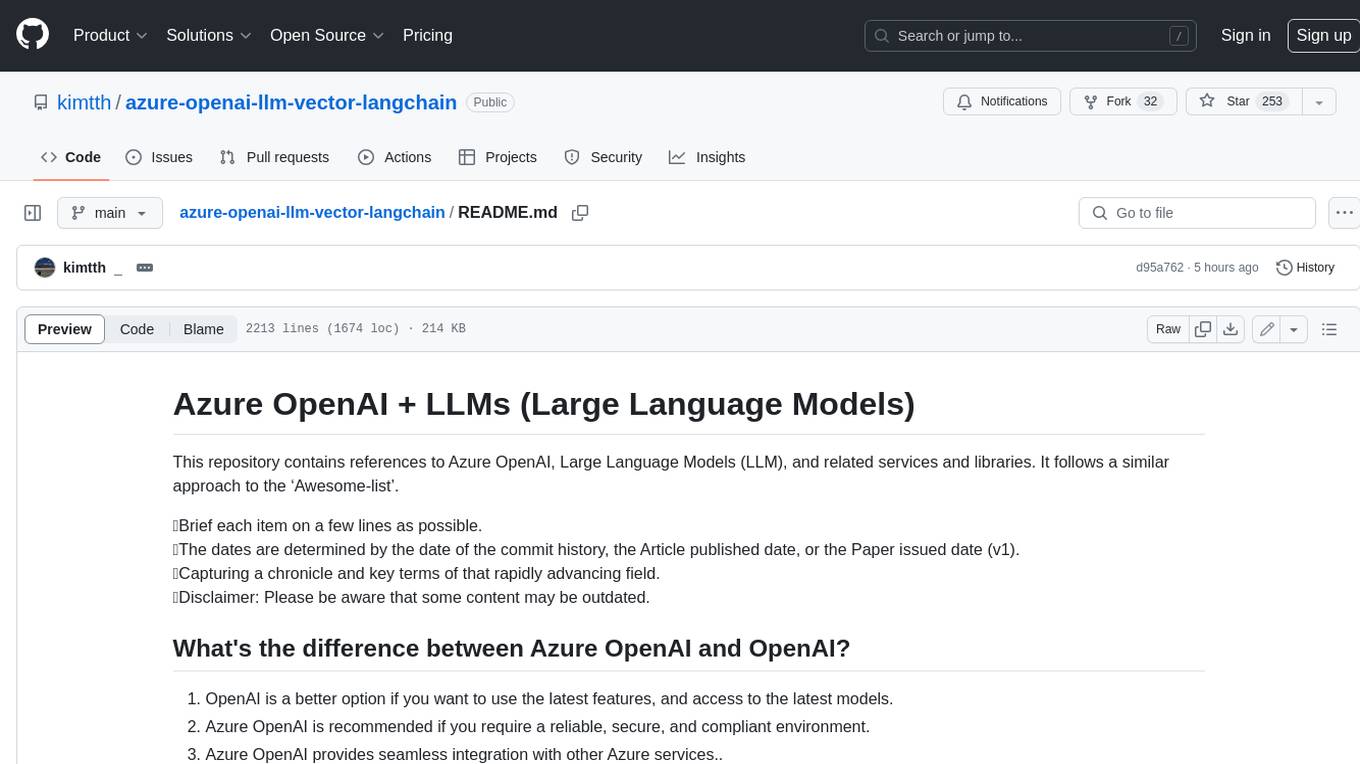
towhee
Towhee is a framework that is dedicated to making neural data processing pipelines simple and fast.
Stars: 3199
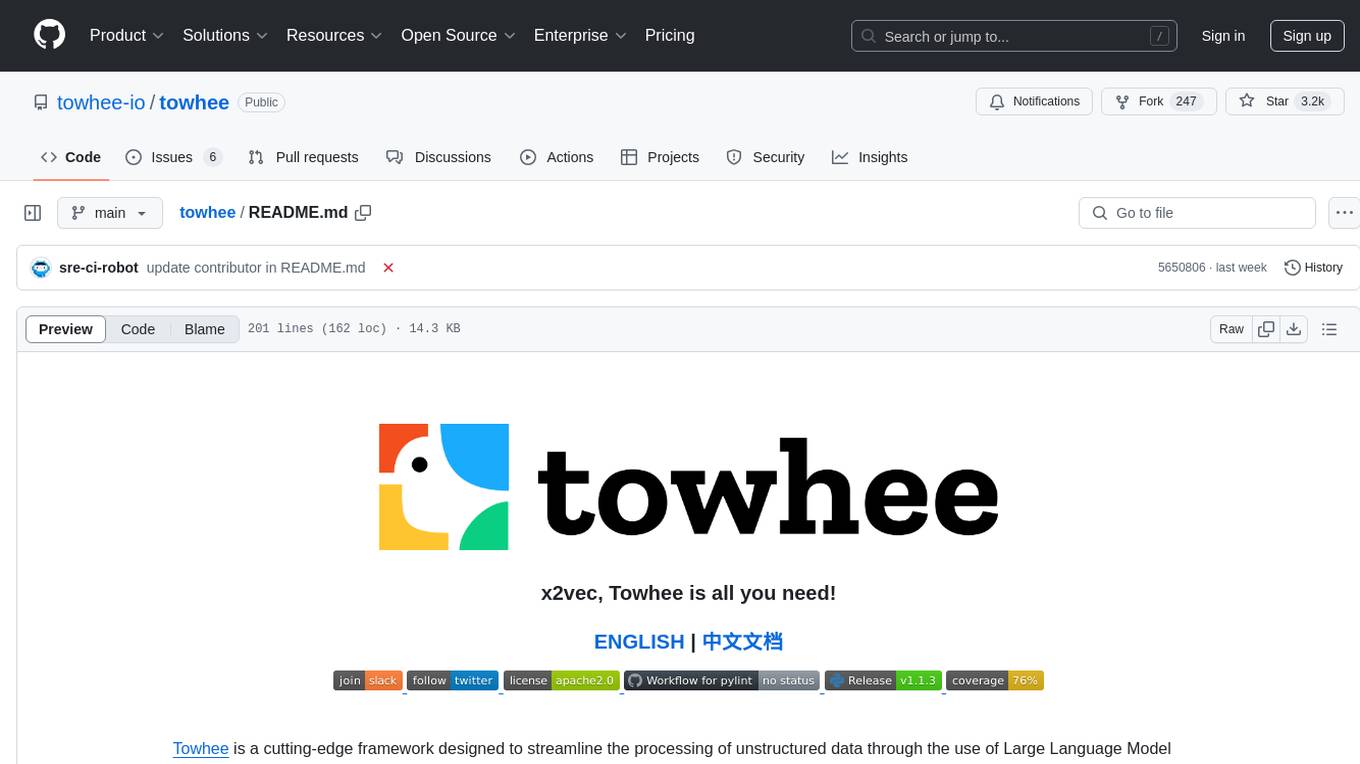
Towhee is a cutting-edge framework designed to streamline the processing of unstructured data through the use of Large Language Model (LLM) based pipeline orchestration. It can extract insights from diverse data types like text, images, audio, and video files using generative AI and deep learning models. Towhee offers rich operators, prebuilt ETL pipelines, and a high-performance backend for efficient data processing. With a Pythonic API, users can build custom data processing pipelines easily. Towhee is suitable for tasks like sentence embedding, image embedding, video deduplication, question answering with documents, and cross-modal retrieval based on CLIP.
README:
x2vec, Towhee is all you need!
Towhee is a cutting-edge framework designed to streamline the processing of unstructured data through the use of Large Language Model (LLM) based pipeline orchestration. It is uniquely positioned to extract invaluable insights from diverse unstructured data types, including lengthy text, images, audio and video files. Leveraging the capabilities of generative AI and the SOTA deep learning models, Towhee is capable of transforming this unprocessed data into specific formats such as text, image, or embeddings. These can then be efficiently loaded into an appropriate storage system like a vector database. Developers can initially build an intuitive data processing pipeline prototype with user friendly Pythonic API, then optimize it for production environments.
🎨 Multi Modalities: Towhee is capable of handling a wide range of data types. Whether it's image data, video clips, text, audio files, or even molecular structures, Towhee can process them all.
📃 LLM Pipeline orchestration: Towhee offers flexibility to adapt to different Large Language Models (LLMs). Additionally, it allows for hosting open-source large models locally. Moreover, Towhee provides features like prompt management and knowledge retrieval, making the interaction with these LLMs more efficient and effective.
🎓 Rich Operators: Towhee provides a wide range of ready-to-use state-of-the-art models across five domains: CV, NLP, multimodal, audio, and medical. With over 140 models like BERT and CLIP and rich functionalities like video decoding, audio slicing, frame sampling, and dimensionality reduction, it assists in efficiently building data processing pipelines.
🔌 Prebuilt ETL Pipelines: Towhee offers ready-to-use ETL (Extract, Transform, Load) pipelines for common tasks such as Retrieval-Augmented Generation, Text Image search, and Video copy detection. This means you don't need to be an AI expert to build applications using these features. ⚡️ High performance backend: Leveraging the power of the Triton Inference Server, Towhee can speed up model serving on both CPU and GPU using platforms like TensorRT, Pytorch, and ONNX. Moreover, you can transform your Python pipeline into a high-performance docker container with just a few lines of code, enabling efficient deployment and scaling.
🐍 Pythonic API: Towhee includes a Pythonic method-chaining API for describing custom data processing pipelines. We also support schemas, which makes processing unstructured data as easy as handling tabular data.
Towhee requires Python 3.7+. You can install Towhee via pip:
pip install towhee towhee.modelsTowhee provides some pre-defined pipelines to help users quickly implement some functions. Currently implemented are:
All pipelines can be found on Towhee Hub. Here is an example of using the sentence_embedding pipeline:
from towhee import AutoPipes, AutoConfig
# get the built-in sentence_similarity pipeline
config = AutoConfig.load_config('sentence_embedding')
config.model = 'paraphrase-albert-small-v2'
config.device = 0
sentence_embedding = AutoPipes.pipeline('sentence_embedding', config=config)
# generate embedding for one sentence
embedding = sentence_embedding('how are you?').get()
# batch generate embeddings for multi-sentences
embeddings = sentence_embedding.batch(['how are you?', 'how old are you?'])
embeddings = [e.get() for e in embeddings]If you can't find the pipeline you want in towhee hub, you can also implement custom pipelines through the towhee Python API. In the following example, we will create a cross-modal retrieval pipeline based on CLIP.
from towhee import ops, pipe, DataCollection
# create image embeddings and build index
p = (
pipe.input('file_name')
.map('file_name', 'img', ops.image_decode.cv2())
.map('img', 'vec', ops.image_text_embedding.clip(model_name='clip_vit_base_patch32', modality='image'))
.map('vec', 'vec', ops.towhee.np_normalize())
.map(('vec', 'file_name'), (), ops.ann_insert.faiss_index('./faiss', 512))
.output()
)
for f_name in ['https://raw.githubusercontent.com/towhee-io/towhee/main/assets/dog1.png',
'https://raw.githubusercontent.com/towhee-io/towhee/main/assets/dog2.png',
'https://raw.githubusercontent.com/towhee-io/towhee/main/assets/dog3.png']:
p(f_name)
# Flush faiss data into disk.
p.flush()
# search image by text
decode = ops.image_decode.cv2('rgb')
p = (
pipe.input('text')
.map('text', 'vec', ops.image_text_embedding.clip(model_name='clip_vit_base_patch32', modality='text'))
.map('vec', 'vec', ops.towhee.np_normalize())
# faiss op result format: [[id, score, [file_name], ...]
.map('vec', 'row', ops.ann_search.faiss_index('./faiss', 3))
.map('row', 'images', lambda x: [decode(item[2][0]) for item in x])
.output('text', 'images')
)
DataCollection(p('puppy Corgi')).show()Towhee is composed of four main building blocks - Operators, Pipelines, DataCollection API and Engine.
-
Operators: An operator is a single building block of a neural data processing pipeline. Different implementations of operators are categorized by tasks, with each task having a standard interface. An operator can be a deep learning model, a data processing method, or a Python function.
-
Pipelines: A pipeline is composed of several operators interconnected in the form of a DAG (directed acyclic graph). This DAG can direct complex functionalities, such as embedding feature extraction, data tagging, and cross modal data analysis.
-
DataCollection API: A Pythonic and method-chaining style API for building custom pipelines, providing multiple data conversion interfaces: map, filter, flat_map, concat, window, time_window, and window_all. Through these interfaces, complex data processing pipelines can be built quickly to process unstructured data such as video, audio, text, images, etc.
-
Engine: The engine sits at Towhee's core. Given a pipeline, the engine will drive dataflow among individual operators, schedule tasks, and monitor compute resource usage (CPU/GPU/etc). We provide a basic engine within Towhee to run pipelines on a single-instance machine and a Triton-based engine for docker containers.
- TowheeHub: https://towhee.io/
- docs: https://towhee.readthedocs.io/en/latest/
- examples: https://github.com/towhee-io/examples
Writing code is not the only way to contribute! Submitting issues, answering questions, and improving documentation are just some of the many ways you can help our growing community. Check out our contributing page for more information.
Special thanks goes to these folks for contributing to Towhee, either on Github, our Towhee Hub, or elsewhere:
Looking for a database to store and index your embedding vectors? Check out Milvus.
For Tasks:
Click tags to check more tools for each tasksFor Jobs:
Alternative AI tools for towhee
Similar Open Source Tools

towhee
Towhee is a cutting-edge framework designed to streamline the processing of unstructured data through the use of Large Language Model (LLM) based pipeline orchestration. It can extract insights from diverse data types like text, images, audio, and video files using generative AI and deep learning models. Towhee offers rich operators, prebuilt ETL pipelines, and a high-performance backend for efficient data processing. With a Pythonic API, users can build custom data processing pipelines easily. Towhee is suitable for tasks like sentence embedding, image embedding, video deduplication, question answering with documents, and cross-modal retrieval based on CLIP.
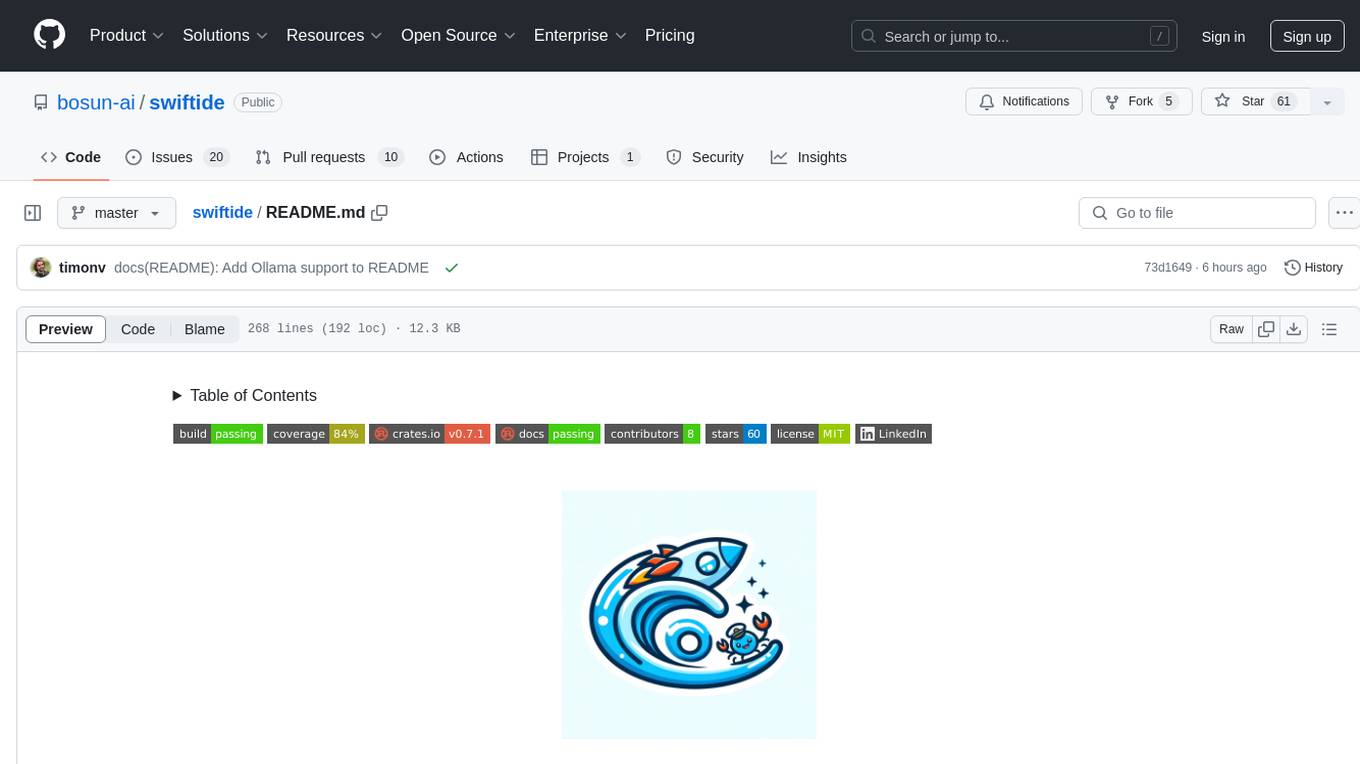
swiftide
Swiftide is a fast, streaming indexing and query library tailored for Retrieval Augmented Generation (RAG) in AI applications. It is built in Rust, utilizing parallel, asynchronous streams for blazingly fast performance. With Swiftide, users can easily build AI applications from idea to production in just a few lines of code. The tool addresses frustrations around performance, stability, and ease of use encountered while working with Python-based tooling. It offers features like fast streaming indexing pipeline, experimental query pipeline, integrations with various platforms, loaders, transformers, chunkers, embedders, and more. Swiftide aims to provide a platform for data indexing and querying to advance the development of automated Large Language Model (LLM) applications.
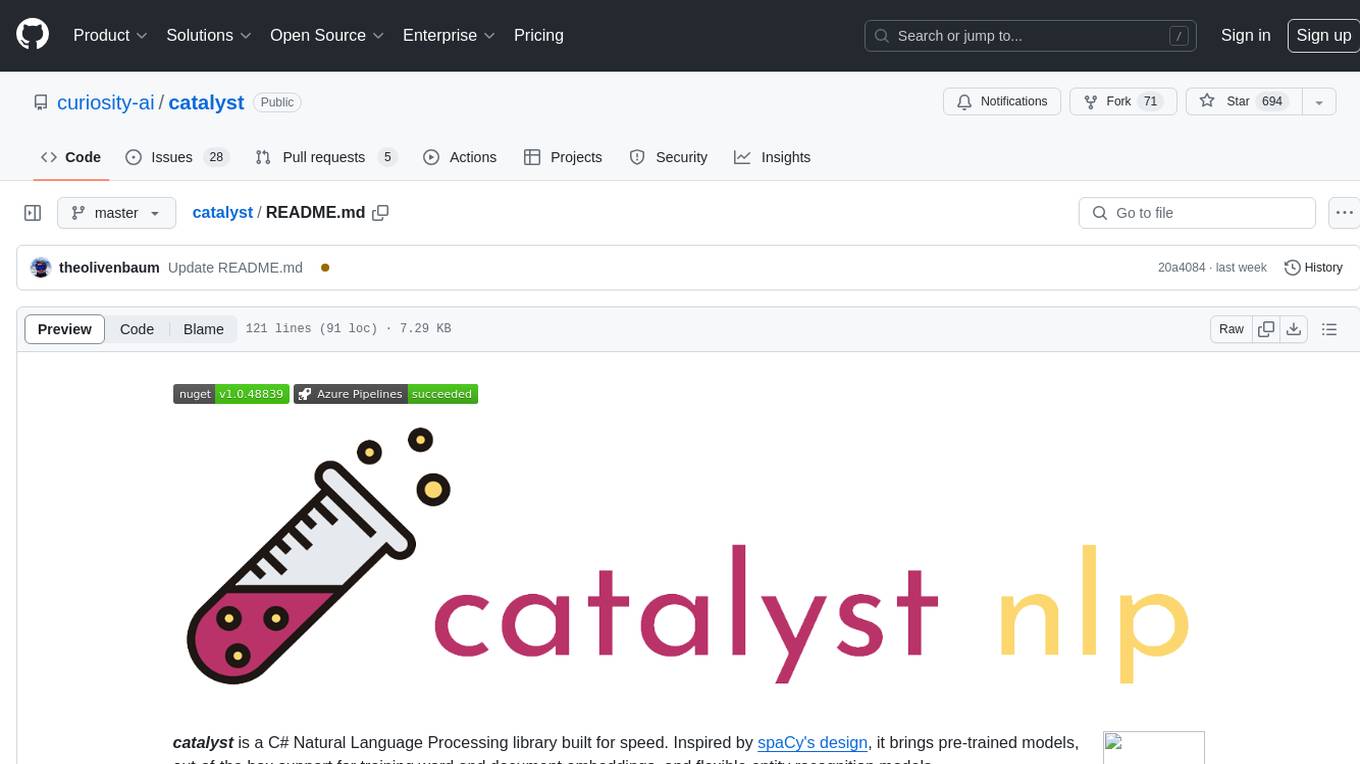
catalyst
Catalyst is a C# Natural Language Processing library designed for speed, inspired by spaCy's design. It provides pre-trained models, support for training word and document embeddings, and flexible entity recognition models. The library is fast, modern, and pure-C#, supporting .NET standard 2.0. It is cross-platform, running on Windows, Linux, macOS, and ARM. Catalyst offers non-destructive tokenization, named entity recognition, part-of-speech tagging, language detection, and efficient binary serialization. It includes pre-built models for language packages and lemmatization. Users can store and load models using streams. Getting started with Catalyst involves installing its NuGet Package and setting the storage to use the online repository. The library supports lazy loading of models from disk or online. Users can take advantage of C# lazy evaluation and native multi-threading support to process documents in parallel. Training a new FastText word2vec embedding model is straightforward, and Catalyst also provides algorithms for fast embedding search and dimensionality reduction.
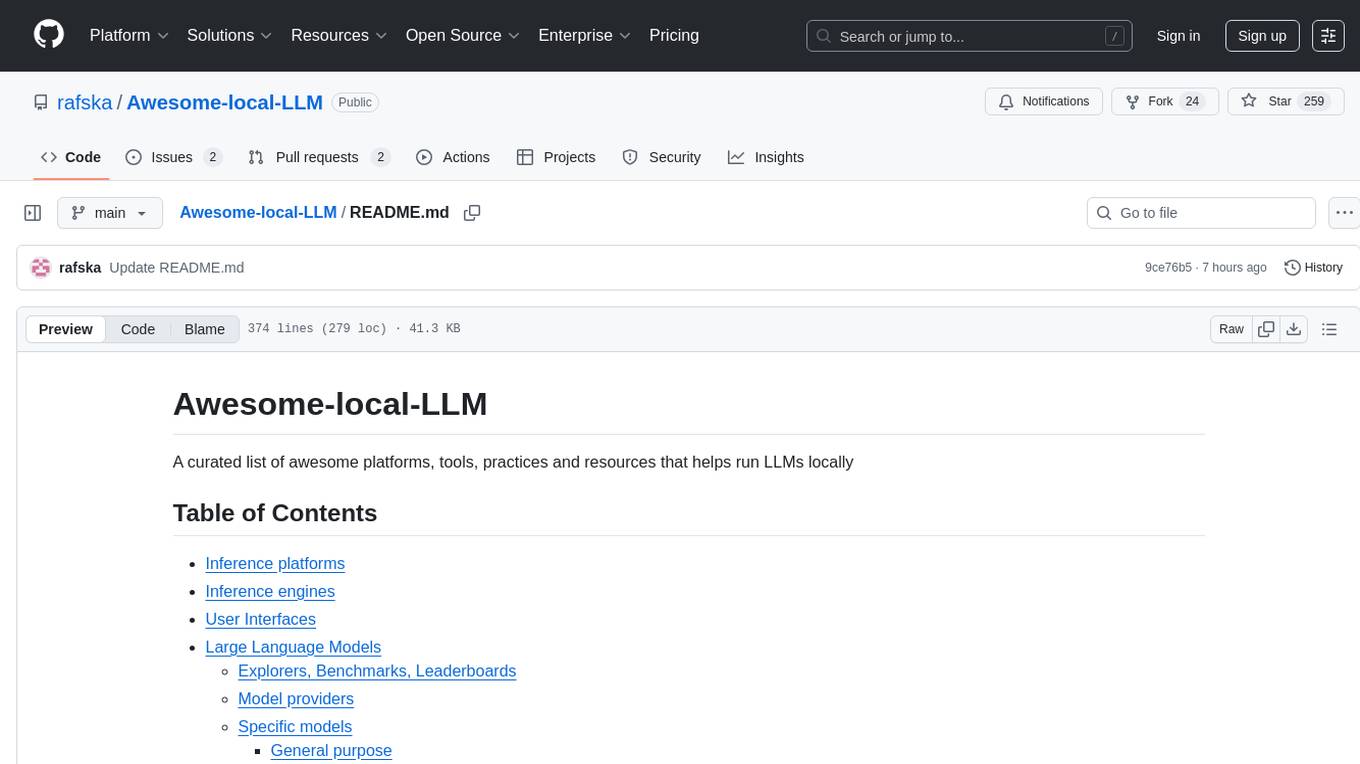
Awesome-local-LLM
Awesome-local-LLM is a curated list of platforms, tools, practices, and resources that help run Large Language Models (LLMs) locally. It includes sections on inference platforms, engines, user interfaces, specific models for general purpose, coding, vision, audio, and miscellaneous tasks. The repository also covers tools for coding agents, agent frameworks, retrieval-augmented generation, computer use, browser automation, memory management, testing, evaluation, research, training, and fine-tuning. Additionally, there are tutorials on models, prompt engineering, context engineering, inference, agents, retrieval-augmented generation, and miscellaneous topics, along with a section on communities for LLM enthusiasts.
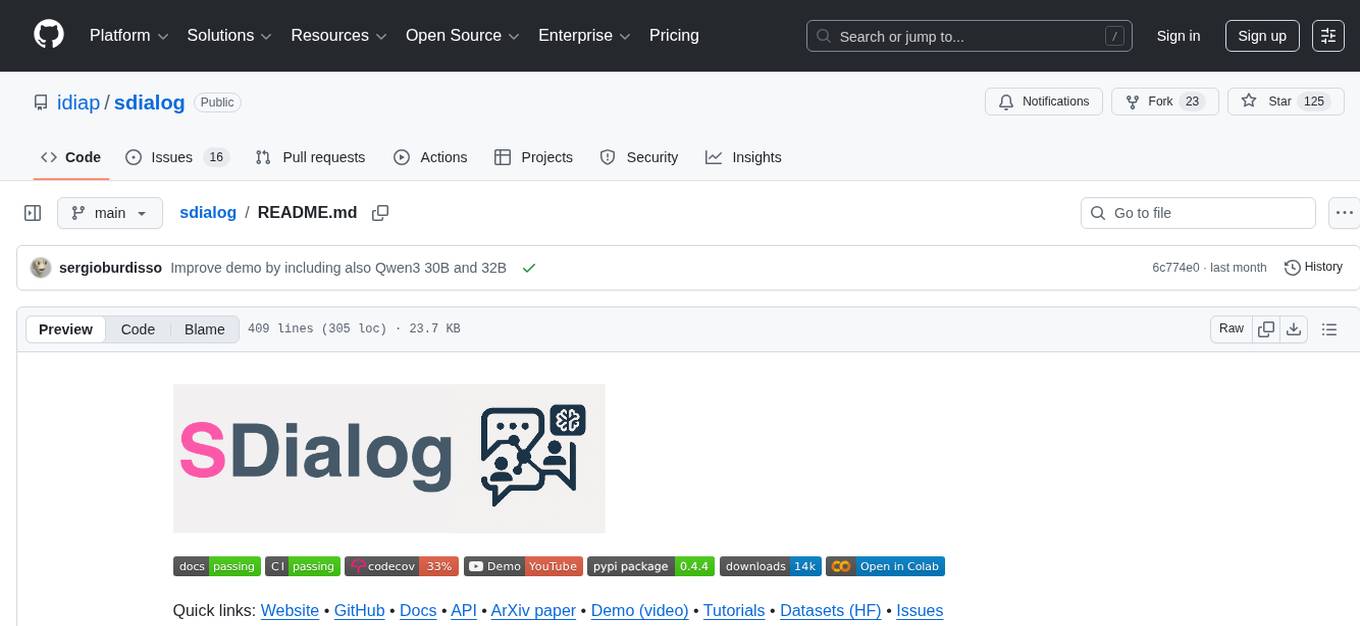
sdialog
SDialog is an MIT-licensed open-source toolkit for building, simulating, and evaluating LLM-based conversational agents end-to-end. It aims to bridge agent construction, user simulation, dialog generation, and evaluation in a single reproducible workflow, enabling the generation of reliable, controllable dialog systems or data at scale. The toolkit standardizes a Dialog schema, offers persona-driven multi-agent simulation with LLMs, provides composable orchestration for precise control over behavior and flow, includes built-in evaluation metrics, and offers mechanistic interpretability. It allows for easy creation of user-defined components and interoperability across various AI platforms.
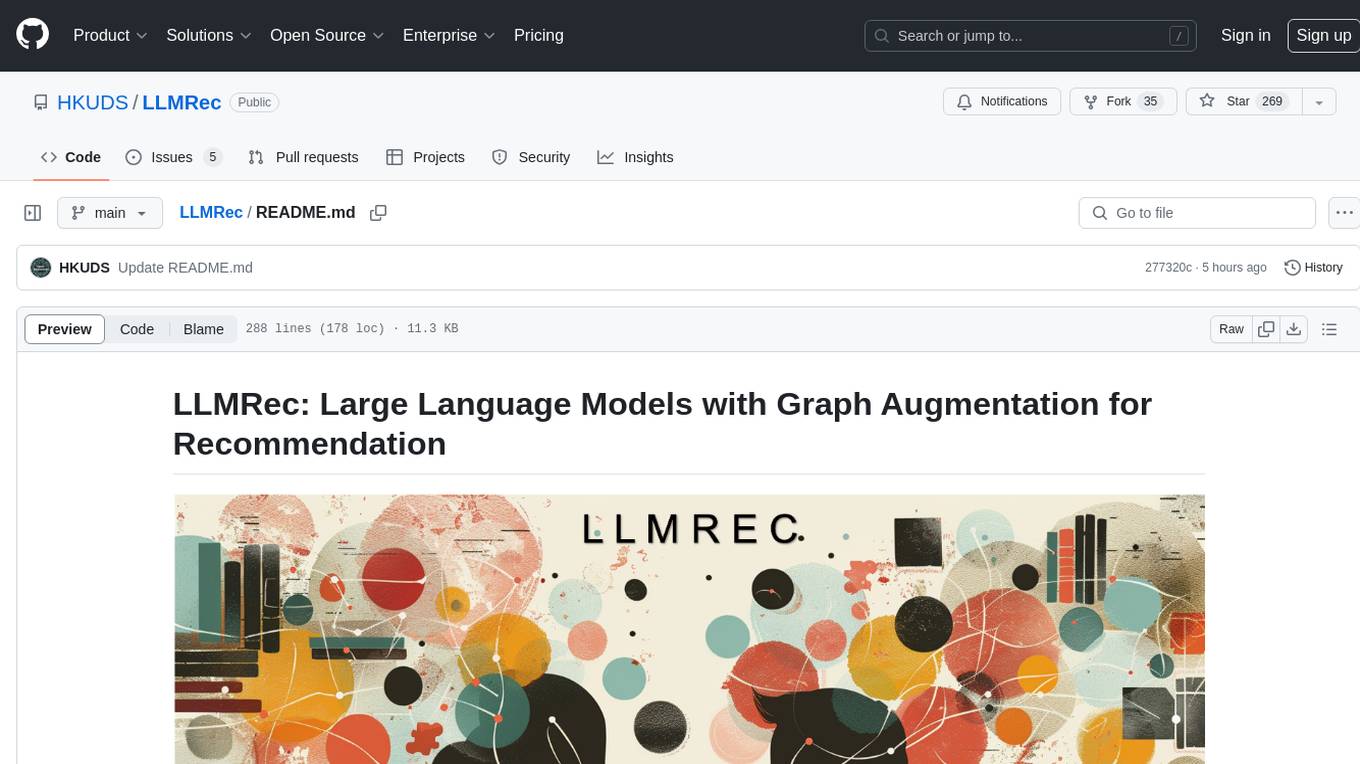
LLMRec
LLMRec is a PyTorch implementation for the WSDM 2024 paper 'Large Language Models with Graph Augmentation for Recommendation'. It is a novel framework that enhances recommenders by applying LLM-based graph augmentation strategies to recommendation systems. The tool aims to make the most of content within online platforms to augment interaction graphs by reinforcing u-i interactive edges, enhancing item node attributes, and conducting user node profiling from a natural language perspective.
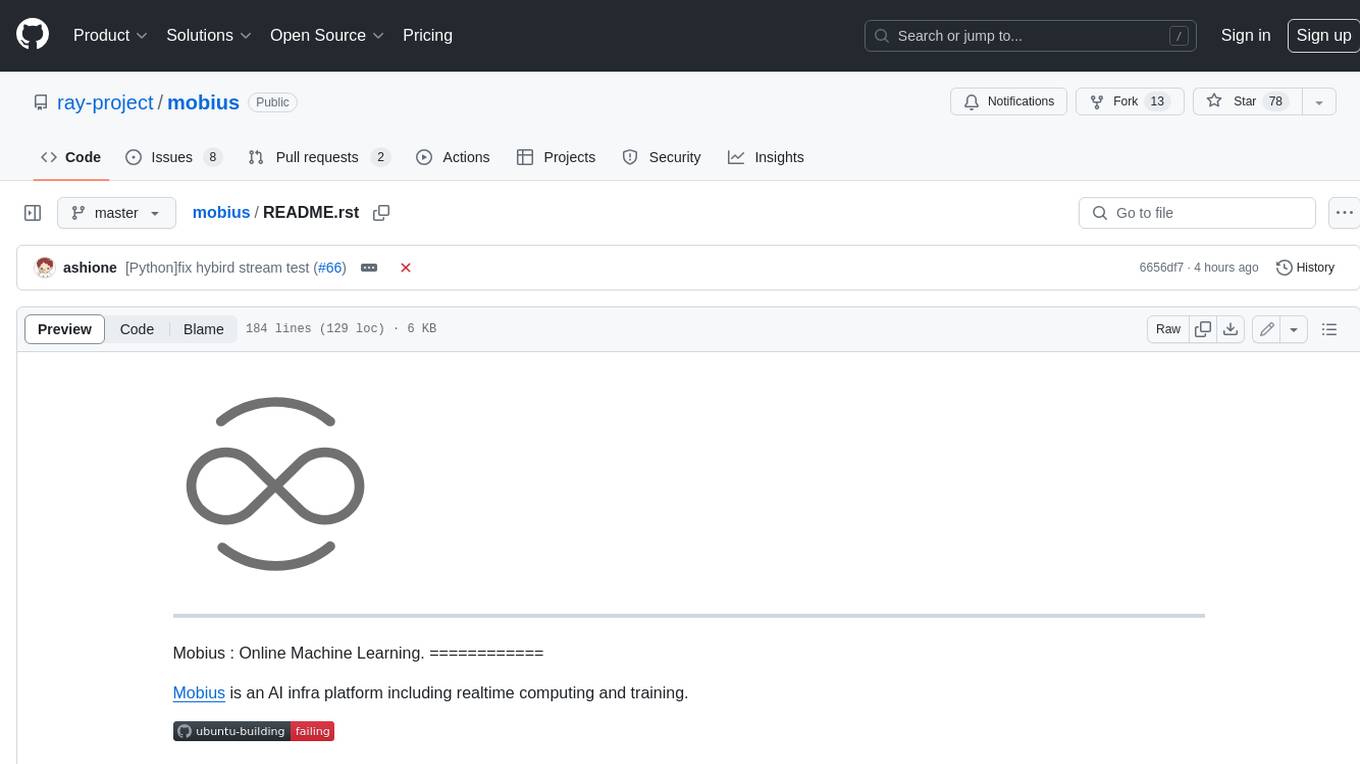
mobius
Mobius is an AI infra platform including realtime computing and training. It is built on Ray, a distributed computing framework, and provides a number of features that make it well-suited for online machine learning tasks. These features include: * **Cross Language**: Mobius can run in multiple languages (only Python and Java are supported currently) with high efficiency. You can implement your operator in different languages and run them in one job. * **Single Node Failover**: Mobius has a special failover mechanism that only needs to rollback the failed node itself, in most cases, to recover the job. This is a huge benefit if your job is sensitive about failure recovery time. * **AutoScaling**: Mobius can generate a new graph with different configurations in runtime without stopping the job. * **Fusion Training**: Mobius can combine TensorFlow/Pytorch and streaming, then building an e2e online machine learning pipeline. Mobius is still under development, but it has already been used to power a number of real-world applications, including: * A real-time recommendation system for a major e-commerce company * A fraud detection system for a large financial institution * A personalized news feed for a major news organization If you are interested in using Mobius for your own online machine learning projects, you can find more information in the documentation.
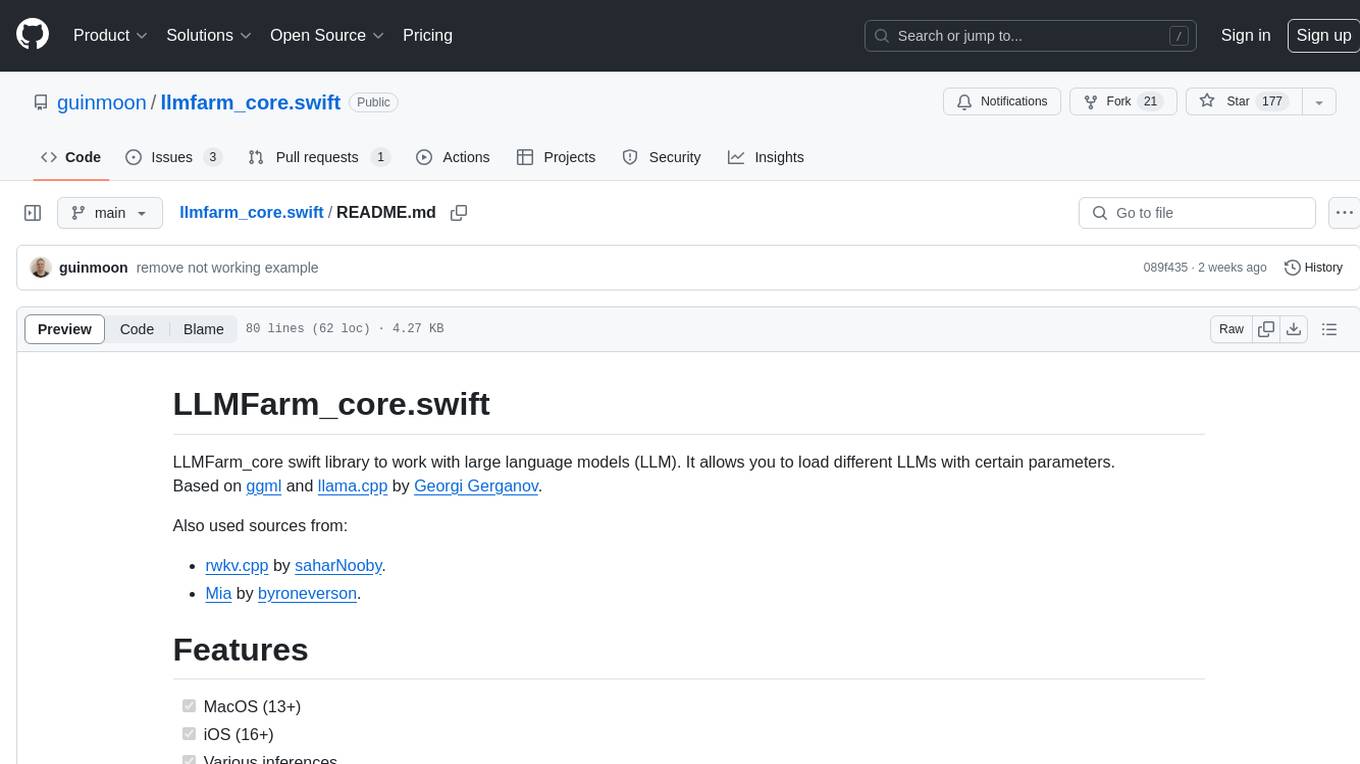
llmfarm_core.swift
LLMFarm_core.swift is a Swift library designed to work with large language models (LLM). It enables users to load different LLMs with specific parameters. The library supports MacOS (13+) and iOS (16+), offering various inferences and sampling methods. It includes features such as Metal support (not compatible with Intel Mac), model setting templates, LoRA adapters support, and LoRA train support. The library is based on ggml and llama.cpp by Georgi Gerganov, with additional sources from rwkv.cpp by saharNooby and Mia by byroneverson.
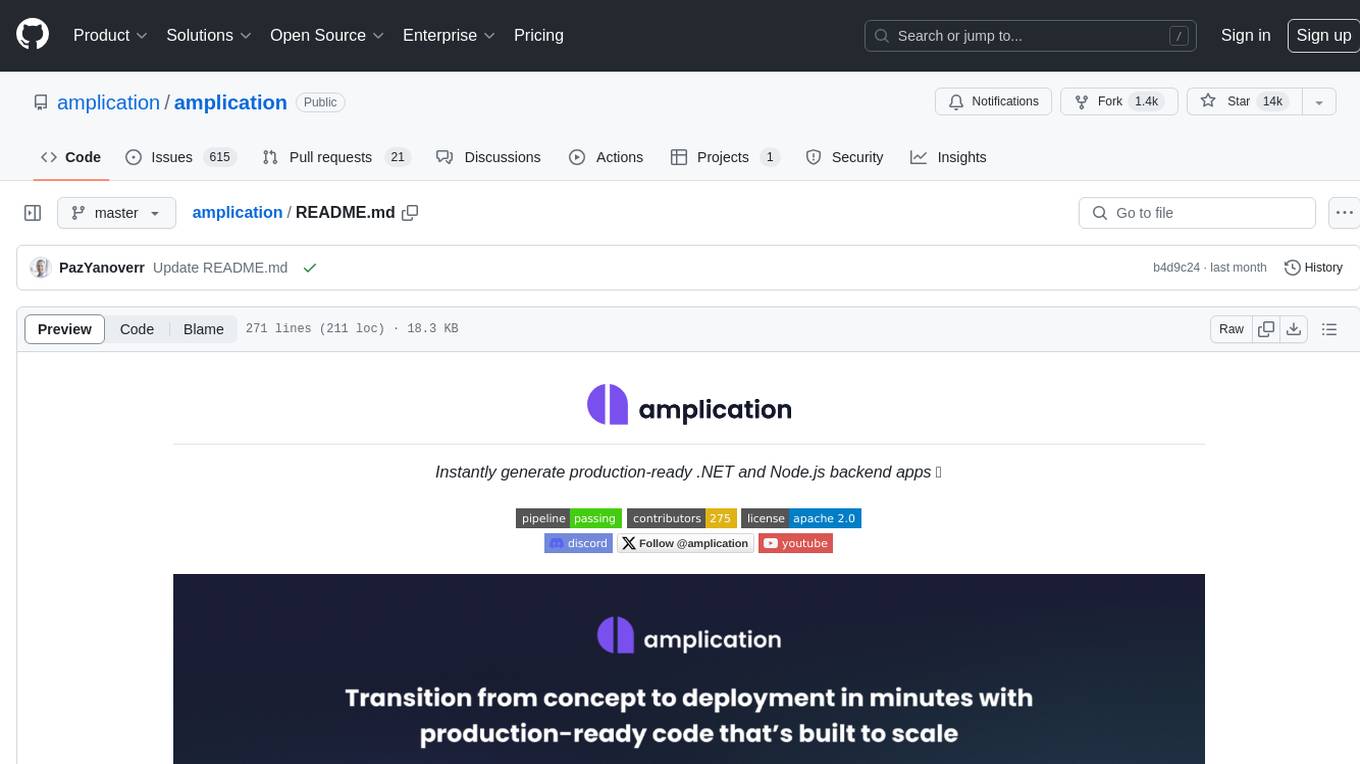
amplication
Amplication is a robust, open-source development platform designed to revolutionize the creation of scalable and secure .NET and Node.js applications. It automates backend applications development, ensuring consistency, predictability, and adherence to the highest standards with code that's built to scale. The user-friendly interface fosters seamless integration of APIs, data models, databases, authentication, and authorization. Built on a flexible, plugin-based architecture, Amplication allows effortless customization of the code and offers a diverse range of integrations. With a strong focus on collaboration, Amplication streamlines team-oriented development, making it an ideal choice for groups of all sizes, from startups to large enterprises. It enables users to concentrate on business logic while handling the heavy lifting of development. Experience the fastest way to develop .NET and Node.js applications with Amplication.
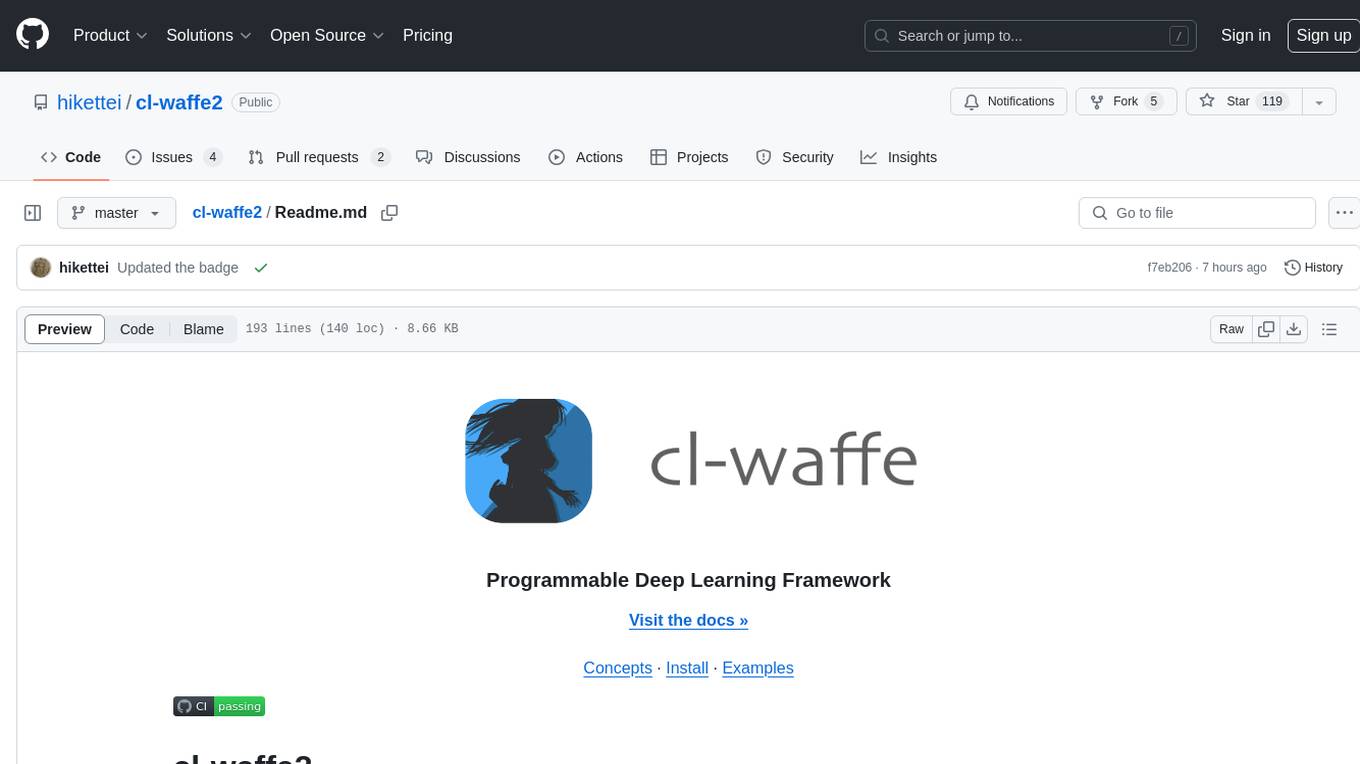
cl-waffe2
cl-waffe2 is an experimental deep learning framework in Common Lisp, providing fast, systematic, and customizable matrix operations, reverse mode tape-based Automatic Differentiation, and neural network model building and training features accelerated by a JIT Compiler. It offers abstraction layers, extensibility, inlining, graph-level optimization, visualization, debugging, systematic nodes, and symbolic differentiation. Users can easily write extensions and optimize their networks without overheads. The framework is designed to eliminate barriers between users and developers, allowing for easy customization and extension.
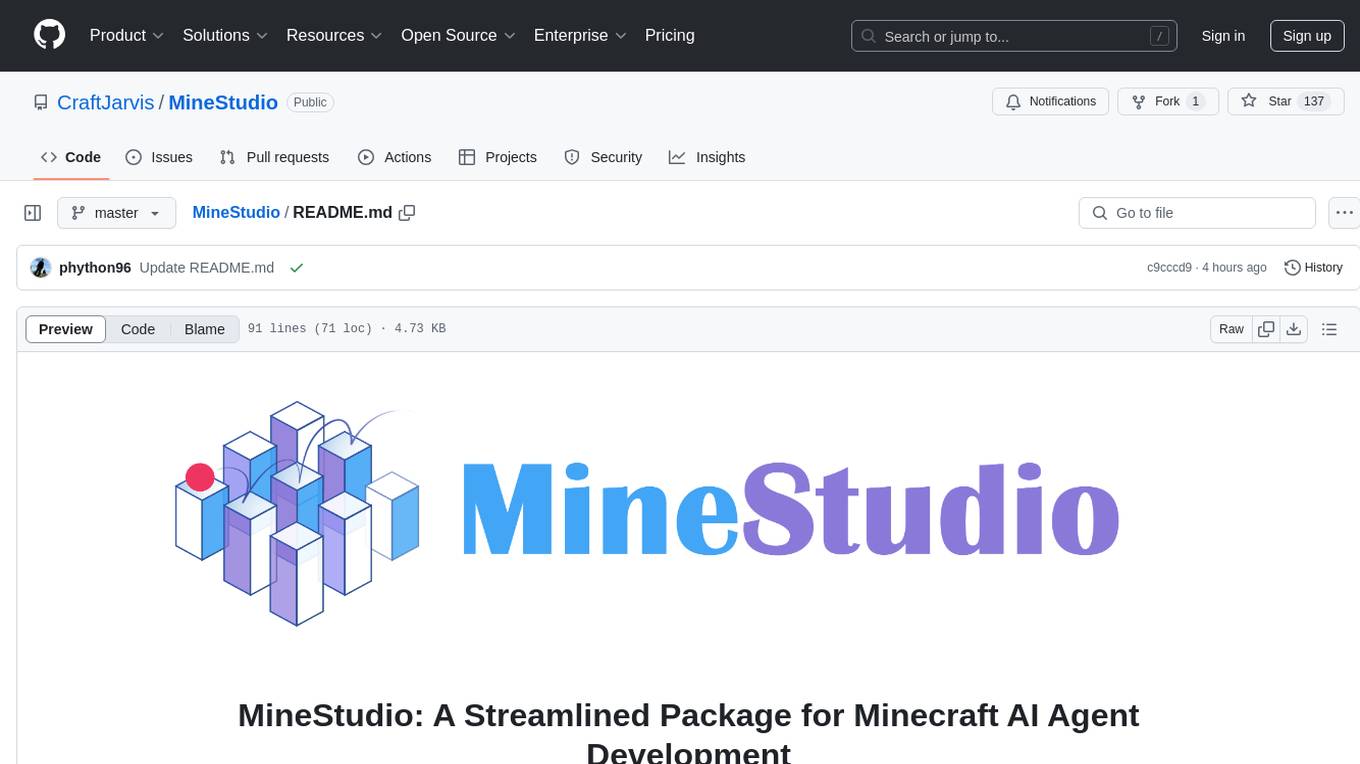
MineStudio
MineStudio is a simple and efficient Minecraft development kit for AI research. It contains tools and APIs for developing Minecraft AI agents, including a customizable simulator, trajectory data structure, policy models, offline and online training pipelines, inference framework, and benchmarking automation. The repository is under development and welcomes contributions and suggestions.
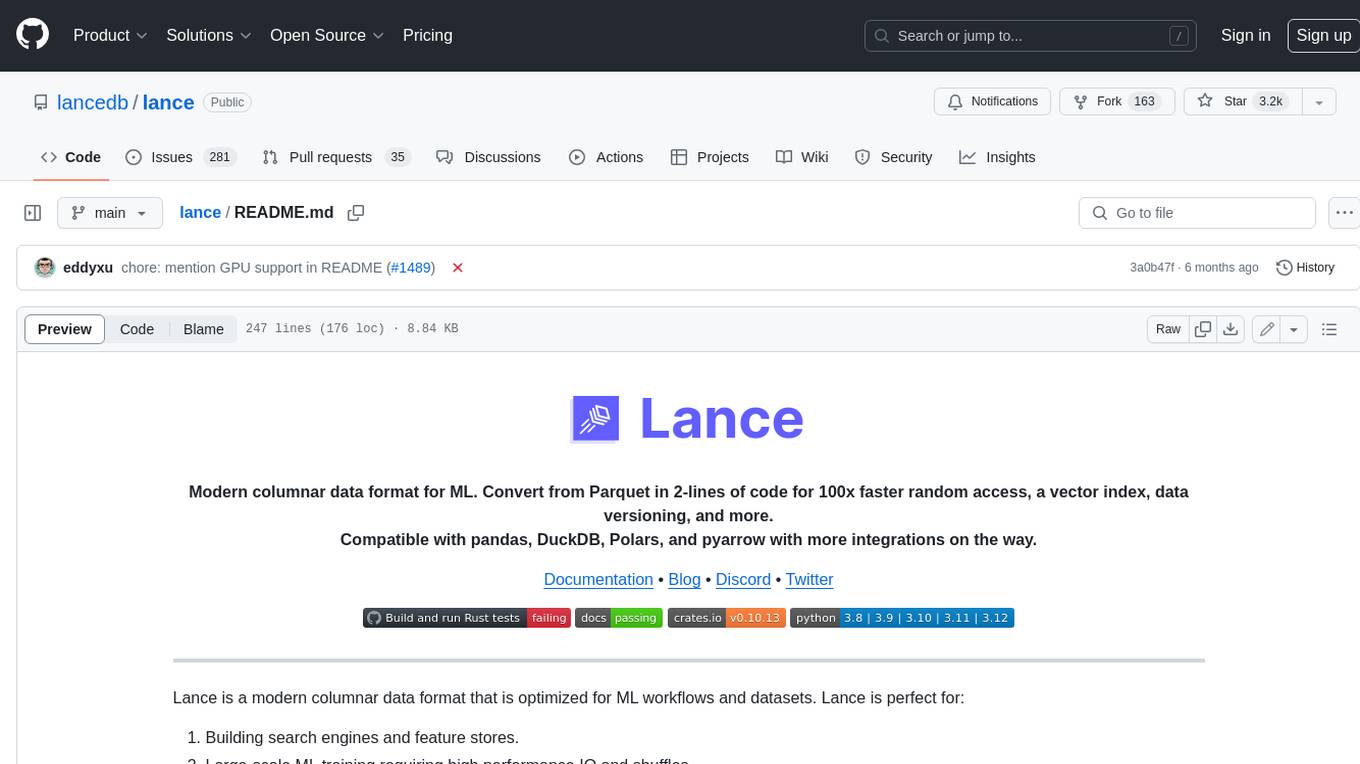
lance
Lance is a modern columnar data format optimized for ML workflows and datasets. It offers high-performance random access, vector search, zero-copy automatic versioning, and ecosystem integrations with Apache Arrow, Pandas, Polars, and DuckDB. Lance is designed to address the challenges of the ML development cycle, providing a unified data format for collection, exploration, analytics, feature engineering, training, evaluation, deployment, and monitoring. It aims to reduce data silos and streamline the ML development process.

cleanlab
Cleanlab helps you **clean** data and **lab** els by automatically detecting issues in a ML dataset. To facilitate **machine learning with messy, real-world data** , this data-centric AI package uses your _existing_ models to estimate dataset problems that can be fixed to train even _better_ models.
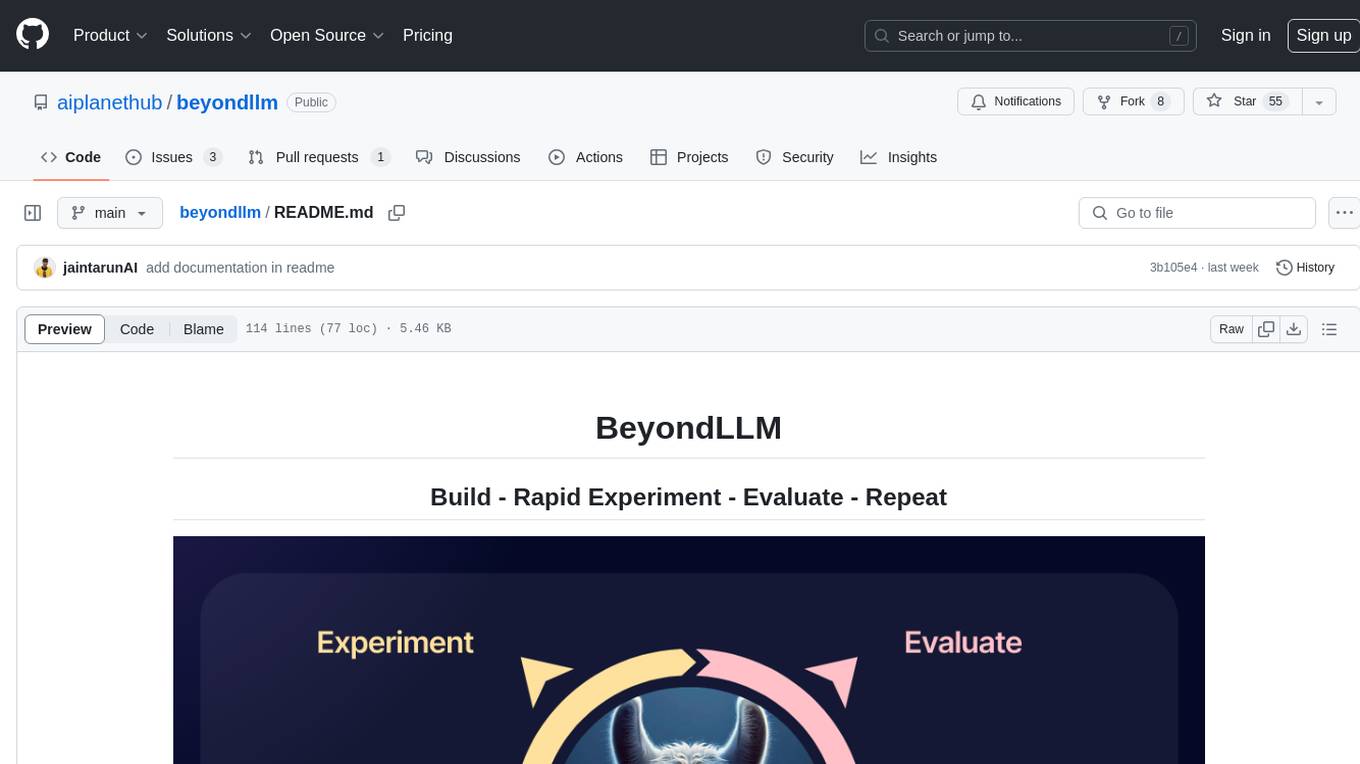
beyondllm
Beyond LLM offers an all-in-one toolkit for experimentation, evaluation, and deployment of Retrieval-Augmented Generation (RAG) systems. It simplifies the process with automated integration, customizable evaluation metrics, and support for various Large Language Models (LLMs) tailored to specific needs. The aim is to reduce LLM hallucination risks and enhance reliability.
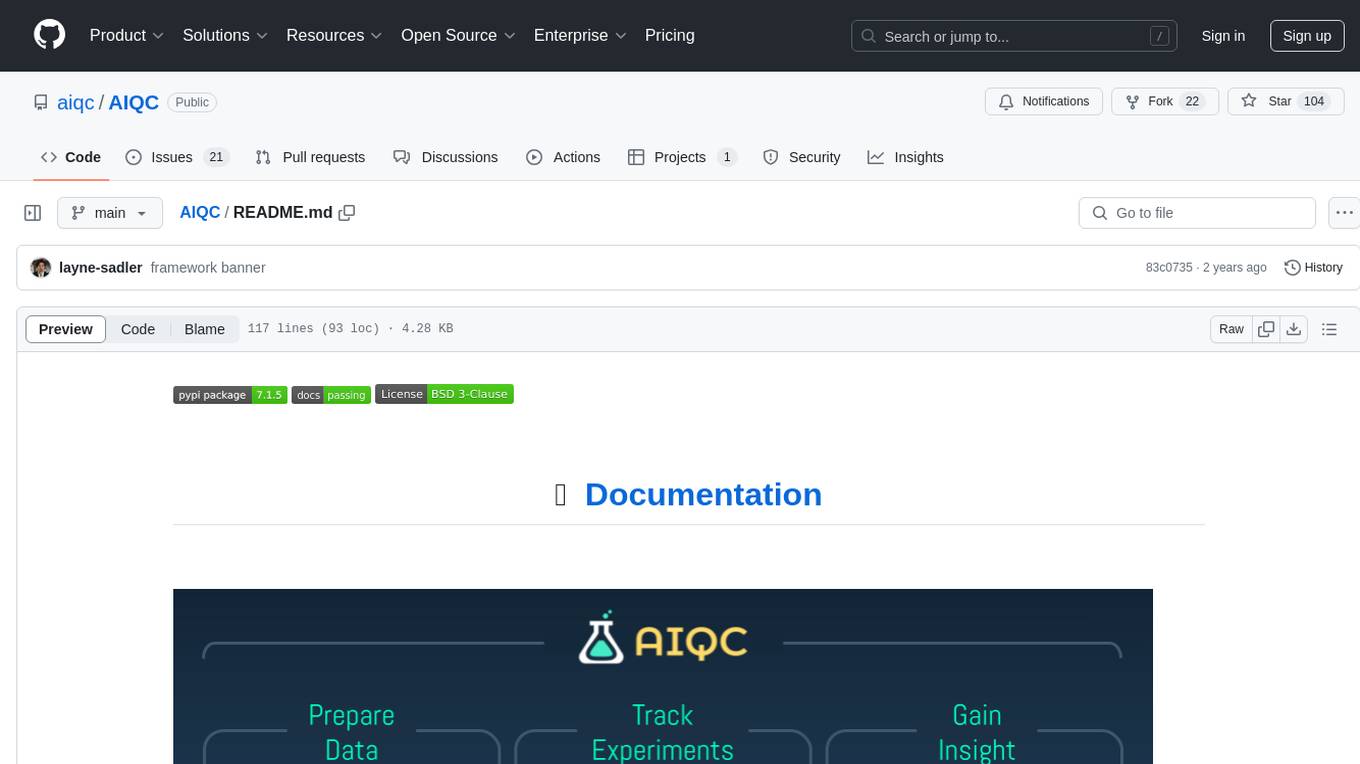
AIQC
AIQC is an open source Python package that provides a declarative API for end-to-end MLOps in order to make deep learning more accessible to researchers. It utilizes a SQLite object-relational model for machine learning objects and stacks standardized workflows for various analyses, data types, and libraries. The benefits include a 90% reduction in data wrangling, reproducibility, and no need to install and maintain application and database servers for experiment tracking. AIQC is pip-installable and provides a Dash-Plotly UI for real-time experiment tracking.
For similar tasks
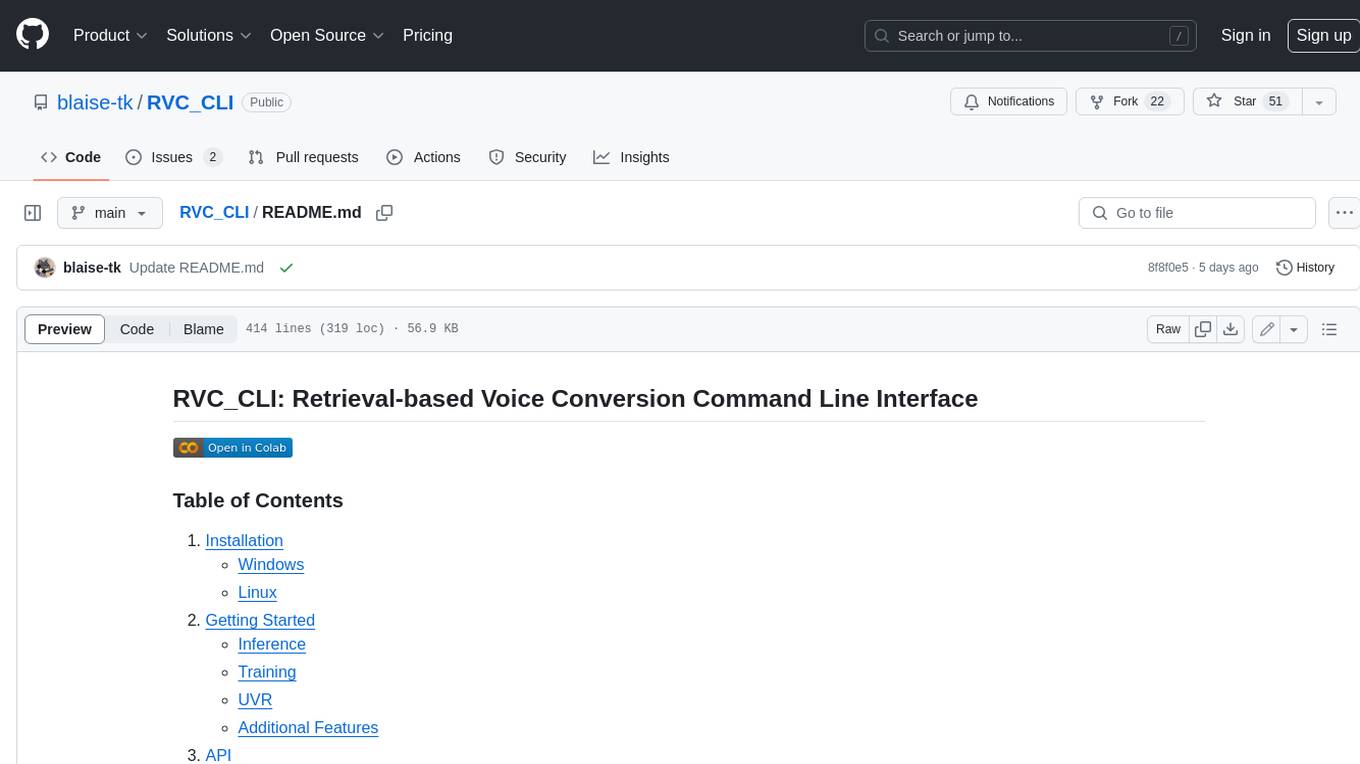
RVC_CLI
**RVC_CLI: Retrieval-based Voice Conversion Command Line Interface** This command-line interface (CLI) provides a comprehensive set of tools for voice conversion, enabling you to modify the pitch, timbre, and other characteristics of audio recordings. It leverages advanced machine learning models to achieve realistic and high-quality voice conversions. **Key Features:** * **Inference:** Convert the pitch and timbre of audio in real-time or process audio files in batch mode. * **TTS Inference:** Synthesize speech from text using a variety of voices and apply voice conversion techniques. * **Training:** Train custom voice conversion models to meet specific requirements. * **Model Management:** Extract, blend, and analyze models to fine-tune and optimize performance. * **Audio Analysis:** Inspect audio files to gain insights into their characteristics. * **API:** Integrate the CLI's functionality into your own applications or workflows. **Applications:** The RVC_CLI finds applications in various domains, including: * **Music Production:** Create unique vocal effects, harmonies, and backing vocals. * **Voiceovers:** Generate voiceovers with different accents, emotions, and styles. * **Audio Editing:** Enhance or modify audio recordings for podcasts, audiobooks, and other content. * **Research and Development:** Explore and advance the field of voice conversion technology. **For Jobs:** * Audio Engineer * Music Producer * Voiceover Artist * Audio Editor * Machine Learning Engineer **AI Keywords:** * Voice Conversion * Pitch Shifting * Timbre Modification * Machine Learning * Audio Processing **For Tasks:** * Convert Pitch * Change Timbre * Synthesize Speech * Train Model * Analyze Audio
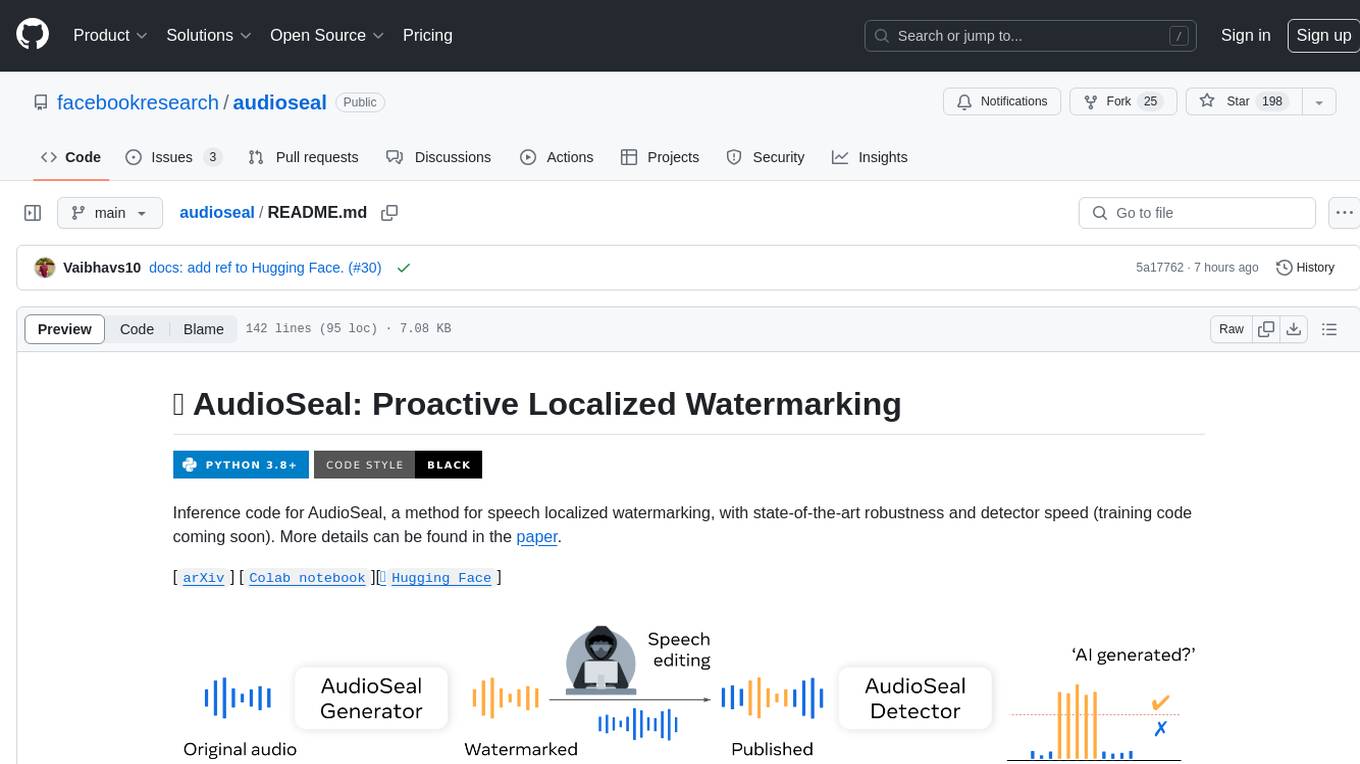
audioseal
AudioSeal is a method for speech localized watermarking, designed with state-of-the-art robustness and detector speed. It jointly trains a generator to embed a watermark in audio and a detector to detect watermarked fragments in longer audios, even in the presence of editing. The tool achieves top-notch detection performance at the sample level, generates minimal alteration of signal quality, and is robust to various audio editing types. With a fast, single-pass detector, AudioSeal surpasses existing models in speed, making it ideal for large-scale and real-time applications.
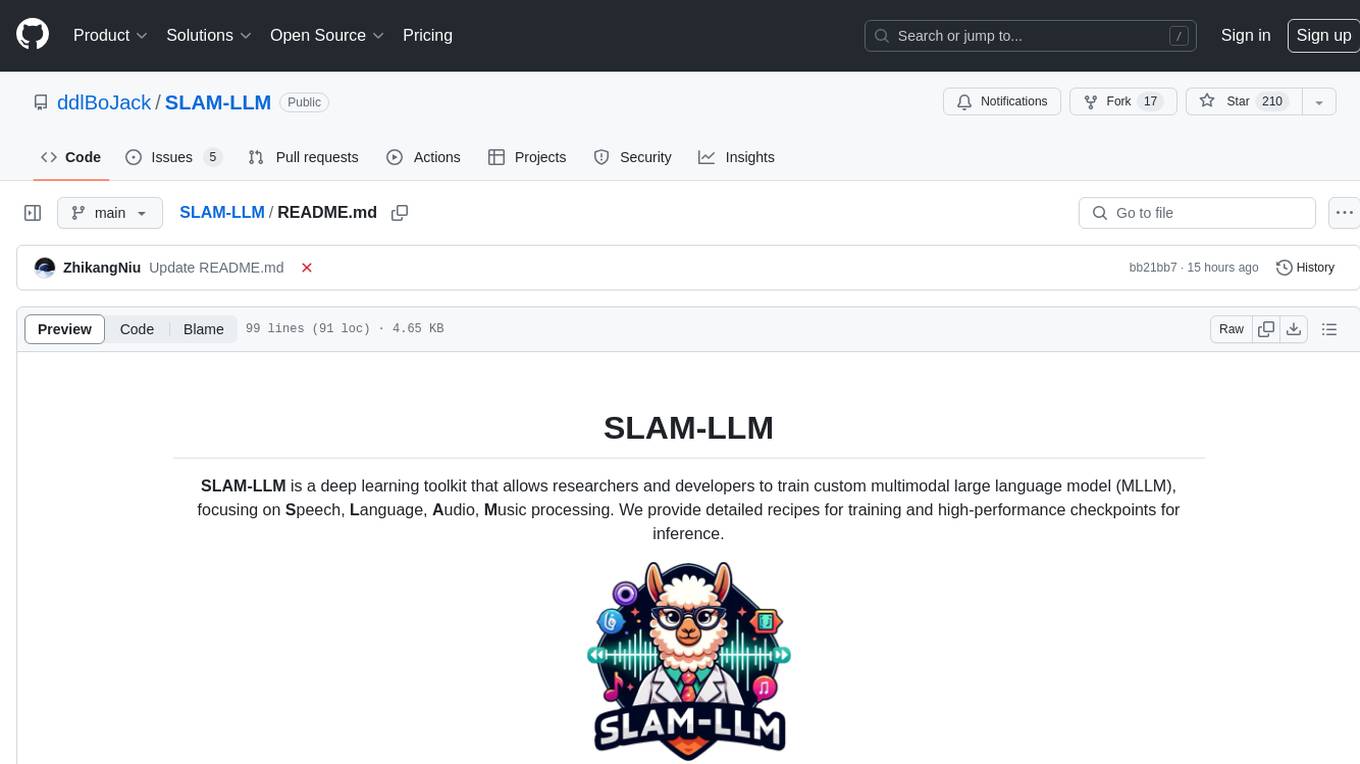
SLAM-LLM
SLAM-LLM is a deep learning toolkit designed for researchers and developers to train custom multimodal large language models (MLLM) focusing on speech, language, audio, and music processing. It provides detailed recipes for training and high-performance checkpoints for inference. The toolkit supports tasks such as automatic speech recognition (ASR), text-to-speech (TTS), visual speech recognition (VSR), automated audio captioning (AAC), spatial audio understanding, and music caption (MC). SLAM-LLM features easy extension to new models and tasks, mixed precision training for faster training with less GPU memory, multi-GPU training with data and model parallelism, and flexible configuration based on Hydra and dataclass.
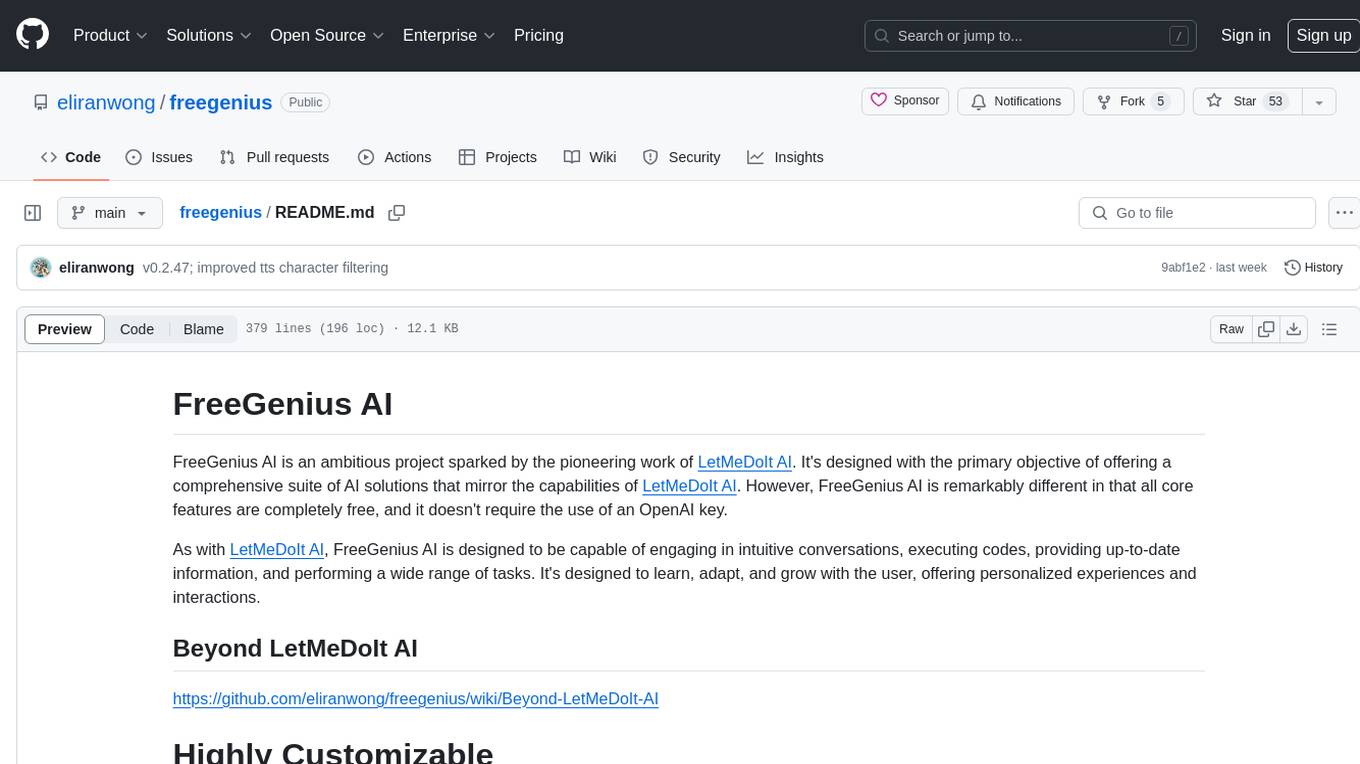
freegenius
FreeGenius AI is an ambitious project offering a comprehensive suite of AI solutions that mirror the capabilities of LetMeDoIt AI. It is designed to engage in intuitive conversations, execute codes, provide up-to-date information, and perform various tasks. The tool is free, customizable, and provides access to real-time data and device information. It aims to support offline and online backends, open-source large language models, and optional API keys. Users can use FreeGenius AI for tasks like generating tweets, analyzing audio, searching financial data, checking weather, and creating maps.
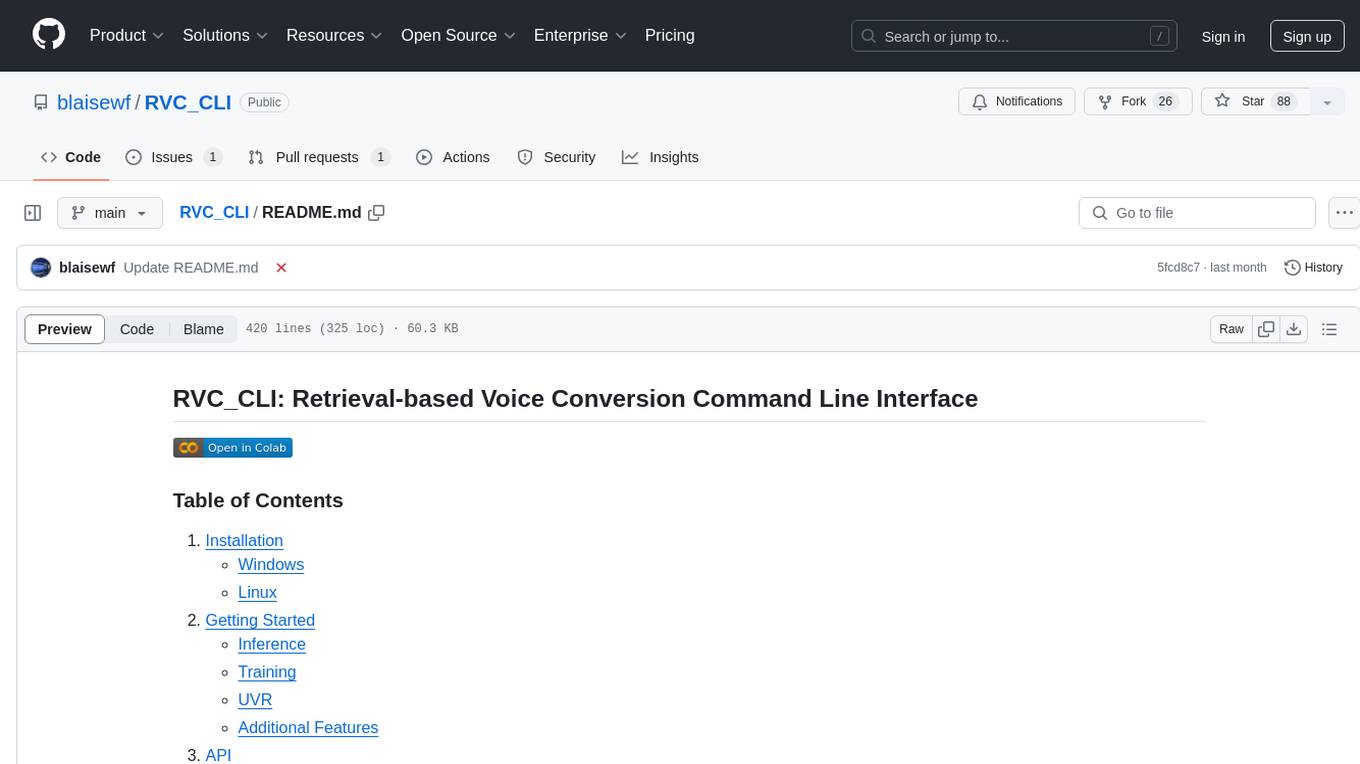
RVC_CLI
RVC_CLI is a command line interface tool for retrieval-based voice conversion. It provides functionalities for installation, getting started, inference, training, UVR, additional features, and API integration. Users can perform tasks like single inference, batch inference, TTS inference, preprocess dataset, extract features, start training, generate index file, model extract, model information, model blender, launch TensorBoard, download models, audio analyzer, and prerequisites download. The tool is built on various projects like ContentVec, HIFIGAN, audio-slicer, python-audio-separator, RMVPE, FCPE, VITS, So-Vits-SVC, Harmonify, and others.

towhee
Towhee is a cutting-edge framework designed to streamline the processing of unstructured data through the use of Large Language Model (LLM) based pipeline orchestration. It can extract insights from diverse data types like text, images, audio, and video files using generative AI and deep learning models. Towhee offers rich operators, prebuilt ETL pipelines, and a high-performance backend for efficient data processing. With a Pythonic API, users can build custom data processing pipelines easily. Towhee is suitable for tasks like sentence embedding, image embedding, video deduplication, question answering with documents, and cross-modal retrieval based on CLIP.
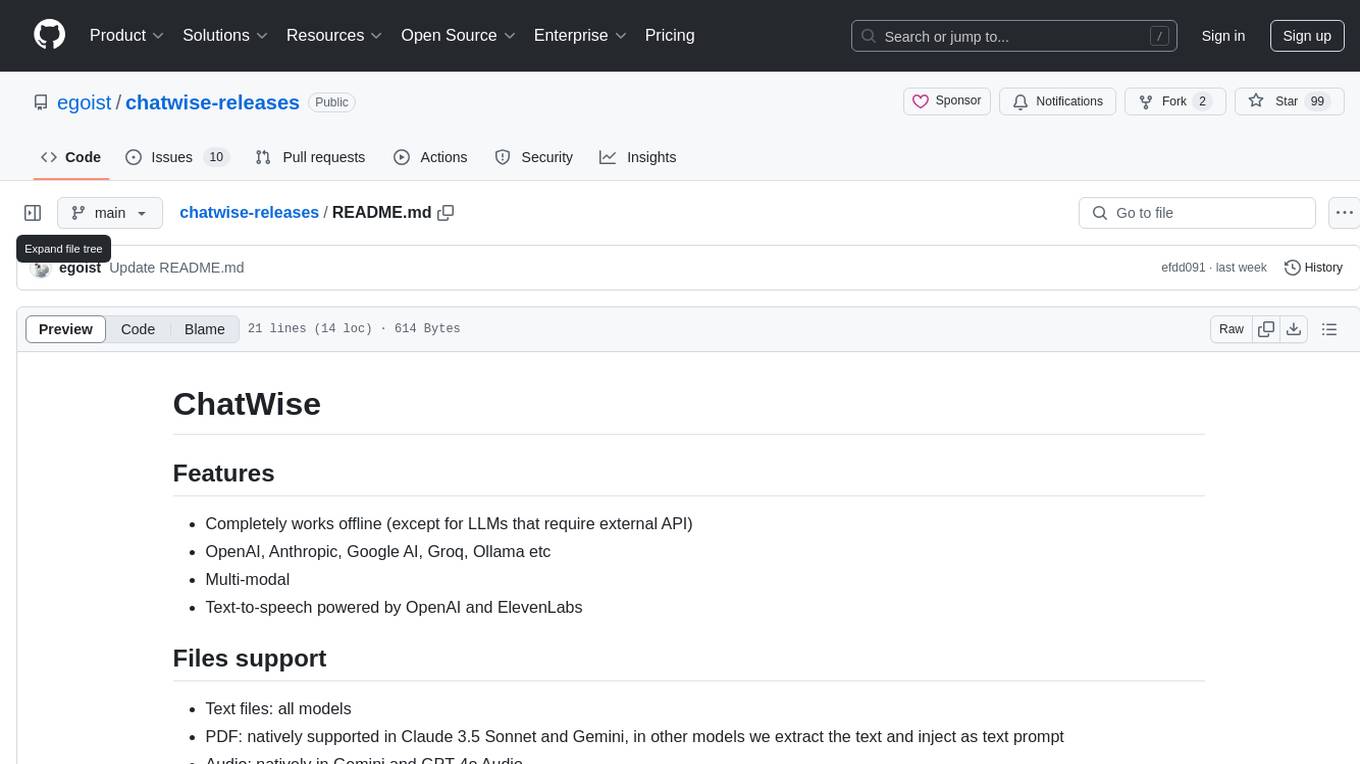
chatwise-releases
ChatWise is an offline tool that supports various AI models such as OpenAI, Anthropic, Google AI, Groq, and Ollama. It is multi-modal, allowing text-to-speech powered by OpenAI and ElevenLabs. The tool supports text files, PDFs, audio, and images across different models. ChatWise is currently available for macOS (Apple Silicon & Intel) with Windows support coming soon.
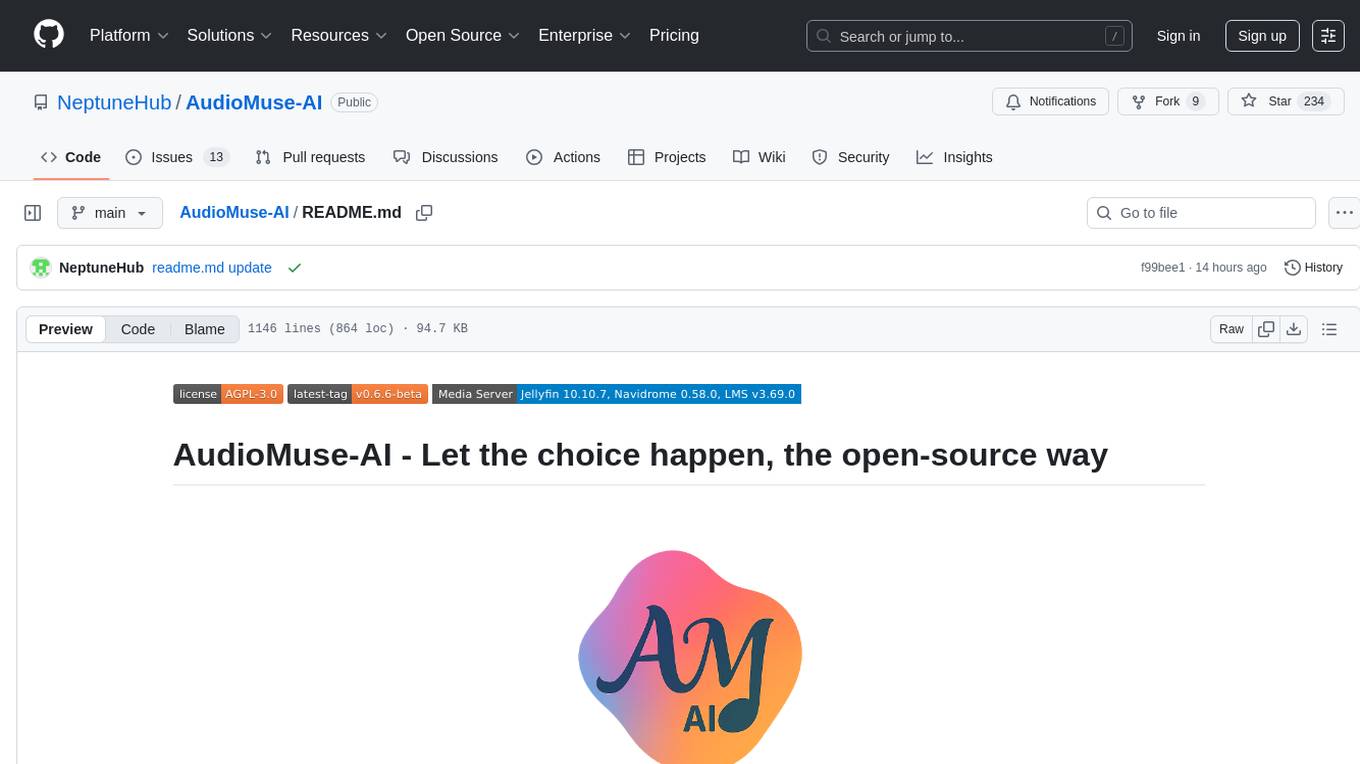
AudioMuse-AI
AudioMuse-AI is a deep learning-based tool for audio analysis and music generation. It provides a user-friendly interface for processing audio data and generating music compositions. The tool utilizes state-of-the-art machine learning algorithms to analyze audio signals and extract meaningful features for music generation. With AudioMuse-AI, users can explore the possibilities of AI in music creation and experiment with different styles and genres. Whether you are a music enthusiast, a researcher, or a developer, AudioMuse-AI offers a versatile platform for audio analysis and music generation.
For similar jobs

weave
Weave is a toolkit for developing Generative AI applications, built by Weights & Biases. With Weave, you can log and debug language model inputs, outputs, and traces; build rigorous, apples-to-apples evaluations for language model use cases; and organize all the information generated across the LLM workflow, from experimentation to evaluations to production. Weave aims to bring rigor, best-practices, and composability to the inherently experimental process of developing Generative AI software, without introducing cognitive overhead.

LLMStack
LLMStack is a no-code platform for building generative AI agents, workflows, and chatbots. It allows users to connect their own data, internal tools, and GPT-powered models without any coding experience. LLMStack can be deployed to the cloud or on-premise and can be accessed via HTTP API or triggered from Slack or Discord.

VisionCraft
The VisionCraft API is a free API for using over 100 different AI models. From images to sound.

kaito
Kaito is an operator that automates the AI/ML inference model deployment in a Kubernetes cluster. It manages large model files using container images, avoids tuning deployment parameters to fit GPU hardware by providing preset configurations, auto-provisions GPU nodes based on model requirements, and hosts large model images in the public Microsoft Container Registry (MCR) if the license allows. Using Kaito, the workflow of onboarding large AI inference models in Kubernetes is largely simplified.

PyRIT
PyRIT is an open access automation framework designed to empower security professionals and ML engineers to red team foundation models and their applications. It automates AI Red Teaming tasks to allow operators to focus on more complicated and time-consuming tasks and can also identify security harms such as misuse (e.g., malware generation, jailbreaking), and privacy harms (e.g., identity theft). The goal is to allow researchers to have a baseline of how well their model and entire inference pipeline is doing against different harm categories and to be able to compare that baseline to future iterations of their model. This allows them to have empirical data on how well their model is doing today, and detect any degradation of performance based on future improvements.

tabby
Tabby is a self-hosted AI coding assistant, offering an open-source and on-premises alternative to GitHub Copilot. It boasts several key features: * Self-contained, with no need for a DBMS or cloud service. * OpenAPI interface, easy to integrate with existing infrastructure (e.g Cloud IDE). * Supports consumer-grade GPUs.

spear
SPEAR (Simulator for Photorealistic Embodied AI Research) is a powerful tool for training embodied agents. It features 300 unique virtual indoor environments with 2,566 unique rooms and 17,234 unique objects that can be manipulated individually. Each environment is designed by a professional artist and features detailed geometry, photorealistic materials, and a unique floor plan and object layout. SPEAR is implemented as Unreal Engine assets and provides an OpenAI Gym interface for interacting with the environments via Python.

Magick
Magick is a groundbreaking visual AIDE (Artificial Intelligence Development Environment) for no-code data pipelines and multimodal agents. Magick can connect to other services and comes with nodes and templates well-suited for intelligent agents, chatbots, complex reasoning systems and realistic characters.









